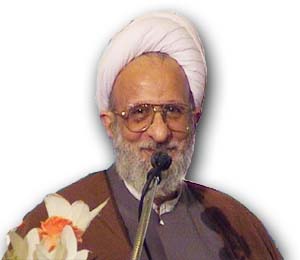Comming to terms with a nuclear Iran
"Things have changed and they have to know it. They can scold us, they can shout at us, but they cannot damage us."
This is what President Ahmadinejad said to Kofi Annan regarding the United States and Britain. The meeting was not an easy one for Annan, Ahmadinejad made no pretense that the UN Secretary General was anything more than a messenger boy for the United States.
Moreover, in an interview with Time magazine, he was asked why Iran refuses to suspend uranium enrichment as a confidence-building measure. His answer was "whose confidence should be built?" The interviewer replied "The world's?". Ahmadinejad then responded by saying,
"The world? The world? Who is the world? The United States? The U.S. Administration is not the entire world. Europe does not account for even one-twentieth of the entire world"
In fact, NAM has strongly supported Iran's right to the use and development of nuclear energy. Thus Iran can argue that numerically, the World supports Iran position not the United States'.
President Chirac's has recently broken ranks with the United States, Britain and Germany by accepting that a suspension of uranium cannot be a pre-condition to negotiations:
"We must first find an agenda for negotiations, then during these negotiations I suggest that, on the one hand, the six [the US, the UK, France, Germany, China and Russia] renounce involving the security council and Iran renounces uranium-enrichment during the negotiations."
What is still unclear is what a temporary suspension of enrichment would achieve; Iran is not going to concede its nuclear rights an a long term or permanent basis and is not minded to do so on a temporary basis. The Iranian position is not that it will agree to suspension, as has been reported in much of the Western media, it is that suspension can be discussed during the negotiations.
Herein lies the problem, the West is incapable of persuading Iran to give up its nuclear rights through the threat of force, sanctions or the offer of economic sweeteners. Therefore, the United States has three course open to it: impose sanctions; go to war; or accept a nuclear Iran. Of the options only the last is realistic and it is the one that the United States has at present been forced to accept, albeit grudgingly.
The problem for the Bush administration, is having so talked up the Iranian nuclear issue, to now publicly accept a nuclear Iran, amounts to an admission of defeat, which he finds inconceivable. he is further hampered by the fact that this dispute cannot run indefinitely with no action. So the US is desperately looking for sanctions, that Chirac has conceded would be ineffective, simply to save face.








2 comments:
George, I would reverse the proposition,
"Anyone who does not truly believe in an afterlife cannot be trusted with nuclear weapons"?
Whoever framed that question has a poor understanding of rhetoric or is setting up a strawman to knock it down again.
George, cannot you see that the reverse of this argument is the stronger?
Your argument hinges on the assumption that: he who believes in the hereafter and theodicy will act accordingly and he who does not, will not. Let us asume that to be true.
You suggest that as A is a believer, A would be more likely to use a nuclear weapon. For A would do so if he believed it to be divinely inspired.
The reverse:
B is a non-believer, B is more likely to use a nuclear weapon. For if B believes it to be in his interests, he has no reason for not doing so.
Amorality, egoism and nepotism are the logical corollaries of atheism.
Hence, we can establish a motive for both parties to launch a nuclear war: the believer where he belives it is in the interest of God and the atheist when it is in his own interests. The question then is who is the more likely?
There is no Islamic legal authority that would justify a pre-emptive nuclear strike. In fact, Ayatullah al-Uzma Sayyed Ali Khamenei, has issued a fatwa that not only rules out the use of a nuclear weapons, it even forbids their posession.
Yet for the atheist, it is simply a matter of the consquences of a nuclear strike being more advantageous that not.
Post a Comment